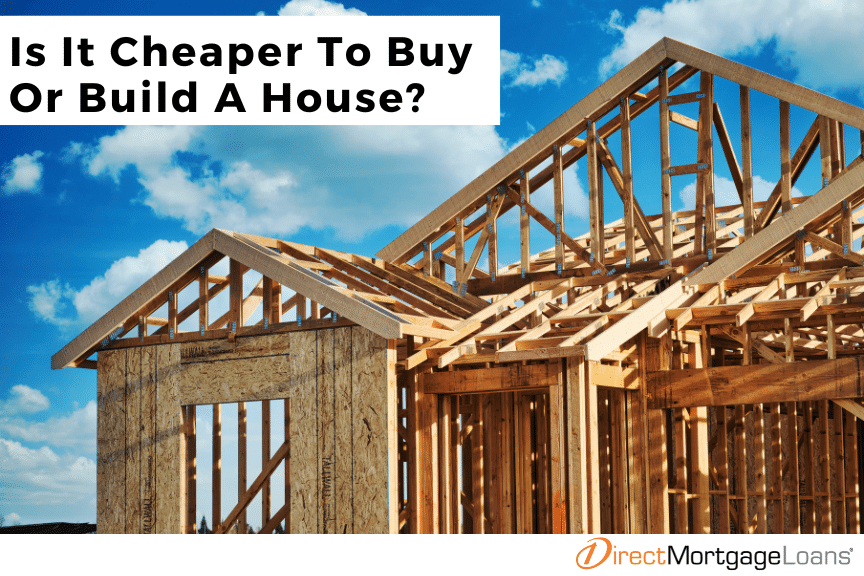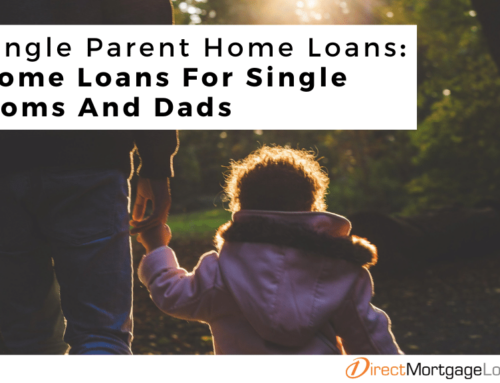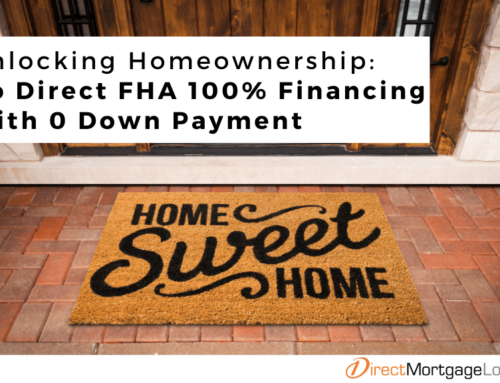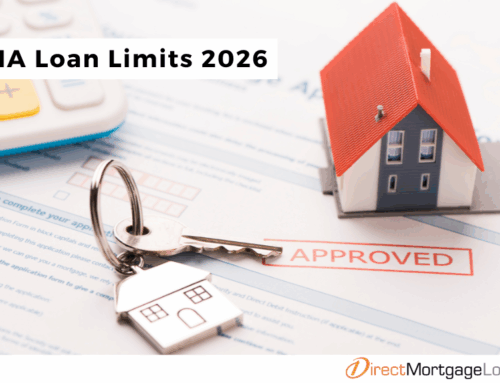Deciding between buying a house or building your dream home is an exciting and important choice you’ll make on your homeownership journey. Each path offers its own set of opportunities, challenges, and financial considerations. Understanding the differences can help you plan more confidently and choose the option that best fits your lifestyle, timeline, and budget goals.
Subscribe to our blog to receive notifications of posts that interest you!
Is it cheaper to buy or build a home?
Determining whether to buy an existing home or build a new one from scratch is a major choice when searching for a new place to live. Each option comes with unique costs, timelines, and considerations. While buying an existing home typically offers a quicker move-in process, building a new home allows you to customize the property to your exact needs. However, factors like material prices, labor shortages, and land costs could significantly impact overall expenses. It’s important to weigh both paths carefully based on your personal budget, timeline, and future goals. Direct Mortgage Loans carries a variety of options from new construction loans to all types of conventional, FHA, VA, and more. Reach out to an expert loan officer to learn more.
Building vs Buying A Home
When weighing the choice between building or buying, it helps to understand the general differences in cost, time, and process. This section offers a high-level comparison to give you a better sense of what each path involves before diving into the more detailed breakdowns below. Both options come with unique benefits and trade-offs—and knowing what to expect early on can help you plan with confidence.
How much does it cost to build a home?
Building a home offers the advantage of personalization but often comes with a higher price tag. Costs could vary depending on location, size, design complexity, and material costs. According to Ramsey Solutions, the average cost to build a standard home in the U.S. is about $158 per square foot, though custom homes with luxury finishes can reach up to $550 per square foot. Additionally, you’ll need to factor in expenses like purchasing land, obtaining permits, utility hookups, and potential impact fees. Material costs can fluctuate over time due to factors like tariffs, natural disasters that disrupt supply chains, increased global demand for construction goods, and inflationary pressures. Labor shortages in the construction industry and regional price variations can also significantly impact the final cost of your build.
How much does it cost to buy a house?
Buying an existing home tends to be more straightforward and predictable in terms of costs. The price of an existing home can vary widely depending on location, condition, and market trends, but buyers typically avoid additional expenses like land acquisition and major construction fees. While there may be renovation or upgrade costs down the line, purchasing a move-in-ready home often means fewer immediate surprises compared to building from scratch.
Pros And Cons Of Buying A House
Buying an existing home can offer many advantages, especially if you are looking for a faster, more predictable path to homeownership. However, just like building a home, there are some trade-offs to keep in mind. Understanding the pros and cons of purchasing a home that’s already built could help you make a more confident and informed decision.
Pros
- Quicker Move-In: Buying an existing home often means you could move in immediately after closing, making it an ideal choice if you’re working under a deadline or need immediate housing. This convenience appeals to buyers who value efficiency and speed.
- Predictable Costs: You’ll know the full purchase price ahead of time, and traditional mortgage products are generally more accessible and less complex than construction loans. This clarity in cost helps with budgeting and financial planning.
- Established Neighborhoods: Many existing homes are located in well-developed communities with mature landscaping, schools, public transportation, and local businesses already in place. These factors contribute to lifestyle convenience and property value stability.
- Potential for Negotiation: Depending on market conditions, buyers might be able to negotiate the purchase price, request seller concessions, or include repairs as part of the deal—all of which can make the purchase more affordable or better suited to your needs.
Cons
- Potential Renovations: While move-in ready homes may seem convenient, many existing properties may need immediate updates or repairs to meet your expectations. This could include outdated kitchens, worn flooring, or aging HVAC and plumbing systems. Renovations can be costly and time-consuming, especially if unexpected issues arise after closing.
- Less Personalization: Unlike building a home from scratch, buying a resale property often involves compromising on certain features. You may not get your ideal floor plan, finishes, or energy-efficient systems unless you’re willing to invest in major remodels.
- Higher Utility Costs: Older homes may not meet current energy efficiency standards, which can lead to higher monthly utility bills. Outdated insulation, windows, and appliances are less effective than modern alternatives, and retrofitting a home with newer systems can be expensive.
- Competitive Market: In a seller’s market, existing homes can attract multiple offers quickly. This competition can lead to bidding wars, inflated purchase prices, and the need to make fast decisions, sometimes with fewer contingencies. Buyers may also need to waive inspections or appraisals to stay competitive, increasing potential risk.
Pros and Cons Of Building A Home
Building a home is an exciting opportunity to design a living space that truly reflects your vision and lifestyle. However, it also requires careful consideration of the unique challenges involved. Before deciding to build, it’s important to understand both the advantages and the potential obstacles that may come with the process.
Pros
- Customization: One of the most appealing aspects of building a home is the ability to make it your own from day one. You can select the floor plan, architectural style, fixtures, and finishes that best suit your preferences and lifestyle, ensuring the final product meets your exact vision.
- Energy Efficiency: New homes are generally constructed with the latest energy-efficient materials and technology. From enhanced insulation and double-pane windows to ENERGY STAR® appliances and smart thermostats, these upgrades can significantly reduce your utility bills and environmental impact.
- Lower Immediate Maintenance Costs: Since everything in the home is new, including plumbing, electrical systems, HVAC units, and appliances, you are far less likely to encounter unexpected repair costs early on. This could offer peace of mind and more predictable monthly expenses.
- Modern Design and Safety Standards: Building from scratch allows your home to be designed with current building codes and safety features in mind. This can include fire-resistant materials, up-to-date wiring, and modern structural standards that improve long-term durability.
Cons
- Higher Upfront Costs: Building often requires more money out-of-pocket at the start, including land purchase, design services, permits, and construction materials. These expenses can add up quickly, especially if custom features or upgrades are included.
- Longer Timeline: Construction projects are rarely quick. Depending on scope, availability of materials, weather conditions, and contractor scheduling, building a home can take anywhere from several months to over a year. This can delay your move-in date and require interim housing solutions.
- Financing Complexity: Construction loans differ from traditional mortgages loans. They often require more paperwork, stricter approval criteria, larger down payments, and oversight throughout the process. You’ll typically need to convert the construction loan into a permanent mortgage after the home is completed.
- Unexpected Delays and Costs: Even with careful planning, surprises can arise during the construction process. From permit holdups to supply shortages or rising material costs, these issues can extend timelines and stretch your budget beyond initial estimates.
Should you build or buy a house?
Choosing whether to build or buy ultimately comes down to your individual priorities, budget, and timeline. If you value customization and can be flexible with your move-in date, building a home could be the perfect fit. On the other hand, if you need to relocate quickly or prefer a simpler financing process, buying an existing home may be the better option.
Financing also plays a key role in your decision. Building a home typically requires a construction loan, which involves different terms than a traditional home loan. Construction loans usually cover the costs in stages as the home is built and often have higher interest rates until the project is completed and refinanced into a traditional mortgage. Working with Direct Mortgage Loans in both construction and purchase financing could help you navigate this process smoothly with a team of experienced loan officers, ready to help you.
Additionally, while construction costs could be impacted by market shifts and tariffs, buying an existing home means you’re paying today’s market price, which could rise or fall depending on housing demand.
Whether you choose to build or buy, Direct Mortgage Loans is here to help you explore your options and find the financing solution that fits your goals. There are experienced loan officers ready to guide you through every step of your homeownership journey.







Leave A Comment
You must be logged in to post a comment.